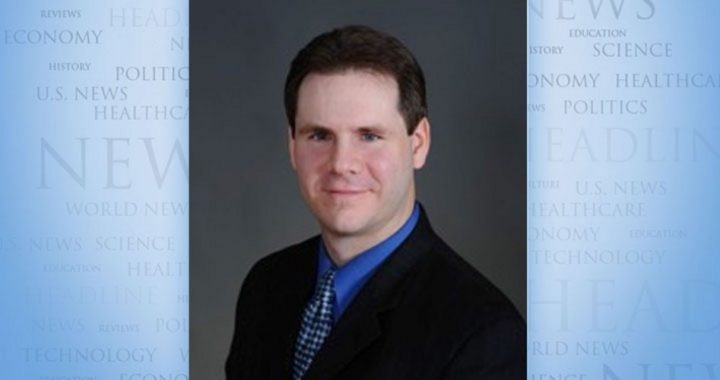
We’re supposed to be living in the era of consolidation of power. There’s the European Union and the euro, NAFTA and ambitions for a North American Union, and former Israeli president Shimon Peres even floated the idea of a UN-style Organization of United Religions. And isn’t this the tide of history? Just as the Brythons, Angles, Saxons, Jutes, Danes, Normans, and others all became amalgamated into the “English,” just as the same happened in other parts of Europe with different “barbarian” tribes, doesn’t everything move toward oneness?
That’s the theory. The reality today is a bit different: Secession is all the rage. There are the Basques and Catalonians in Spain, the Kurds in the Middle East, Belgium’s Flanders region, Venice and other areas in Italy, and no small number of U.S. counties want to separate from their states. All talk? Right now, yes. But a lot of this talk wasn’t heard a decade ago, and the rest of it has gotten noticeably louder. And then there’s Scotland. It’s perilously close to turning talk into action with a referendum on independence next Thursday and a recent poll showing the “yes” contingent ahead — for the first time ever. What’s happening here in our Kumbaya world?
Human nature is happening.
Whatever transpires in Scotland next week, something’s afoot that illustrates a simple fact: Multiculturalism cannot work.
The Scots aren’t, relatively speaking, all that different from the English. Sure, they drink somewhat more, but they speak the same language (roughly), share the same religion (secularism, increasingly), and enjoy a similar reputation for culinary expertise. They’re not nearly as different as, let’s say, “Mexicans” are from “Anglos” in the United States, or Muslims are from Britons in England. Yet many Scots still want out.
The reality of man’s nature I referred to is that there are only two ways of keeping people together: by fraternity or by the fist. By a common culture or a common tyrant.
This can be analogized to a family, which is quite apt since a family writ large is a tribe, and a tribe writ large is a nation (the Sioux Nation was not a “country,” but was thus named because everyone was Sioux). If family members love each other and feel a bond, they quite naturally stay together. What, however, if the children start feeling alienated from the parents and, in fact, don’t get along with each other? What if they develop drastically different “values” and their own little “cultures” (called a “generation gap”) and start to resent the laws and traditions of their little “nation”? They may stay in the family as long as their parents have power over them, the law-decreed power to hold the factions together under one roof. But when they reach 18 and that power is gone — and this is especially true if they can support themselves and there isn’t even parental economic power to keep them in the nation — they may secede and perhaps have nothing more to do with the fatherland.
This has happened to civilizations throughout history. When the vast Roman and British realms became too weak to hold all the disparate groups they governed together, their empires dissolved. This happened more recently in the former Yugoslavia, where the lifting of Marxism’s iron fist allowed ethnic differences to birth different nations. And we see this today in the artificial construct called Iraq: Once there was neither Saddam Hussein’s tyranny nor U.S. troops to keep the kids in line, the different sects started asserting themselves.
And so it ever was. History is not a record of consistent movement toward world unity, but constant cycles of consolidation and division. There have been examples of cultures being suppressed, such as the Tamils in Sri Lanka; of cultures being subsumed, such as the Ainus in Japan; and of cultures going their own way, such as the Bengalis in 1971. But vastly different cultures — and multiculturalism exacerbates differences by encouraging cultural division — living in peace, harmony, and freedom within the same borders? There is no historical example of multiculturalism working anywhere, any time. In practice it always means dissolution or despotism.
What does this portend for the multiculturalism-obsessed West? There’s already friction between burgeoning Muslim populations and native peoples in places such as the U.K., Sweden, France, and the Netherlands, masked to a degree only by the tyranny of the hate-speech laws that suppress criticism of foreign elements (but not native ones). And given that the religiously and ethnically patriotic Muslims aren’t likely to be assimilated, it’s hard to imagine outcomes other than the Islamization of these nations or conflagration that leads to dissolution or ethnic cleansing.
The United States is even more divided. We’re pressing one for English; a poll showed that 58 percent of Mexicans believe that California and the Southwest rightly belong to Mexico; Dearborn, Michigan, is a Muslim enclave; and everyone is a hyphenated this or that, with, as Richard Fernandez put it, the “unadorned term ‘American’ … being drained of meaning and with what value there is lying “in the prefix, not in the suffix.”
And that’s the iceberg’s mere tip. We’re divided religiously/philosophically, with the different stripes of Christianity extant but waning, atheism and paganism waxing, and relativism ensuring continued fracturing as it tells us that each individual can find his own “truth.” This, of course, relates to political division, with all different brands of conservatism, libertarianism, and liberalism (and other things) vying for primacy, as we eat ourselves alive politicking and suing each other into oblivion. If we were a marriage, we’d be an increasingly polygamous one with members who would have divorced long ago were it not for little g in Washington demanding our arrangement be till death do us part.
So what lies in our future? Many worry about autocracy, with the central government becoming increasingly powerful. But as with the Romans and British before us, isn’t dissolution a likely outcome as well? Ron Paul seems to think so. He once pointed out when fielding a question about secession that if the federal government collapses fiscally and no longer has the “economic power” that binds the states together (dishing out entitlements), a strong incentive to stay in the union will be gone. This, along with other precipitating factors, could very well inspire the kids to fly the coop.
If you don’t like either of those possibilities, only one option remains: Scrap multiculturalism and the relativism at its heart. Recognize Truth and forge genuine unity through a common embrace of it. It’s brotherhood — or Balkanization or Big Brother.
As for the geopolitical stage, whatever happens in Scotland next week, it’s only a matter of time before some secessionist domino falls and perhaps triggers that well-known effect. Because our weakness lies in our diversity, and human nature is happening — all around us.



